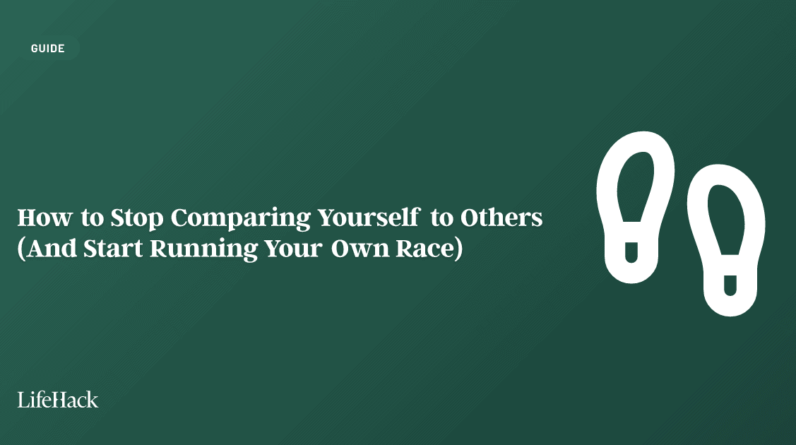
Studies indicate that people who consistently engage in positive habits are 40% more inclined to express satisfaction and joy.
This article aims to share practical habits that can boost your happiness and lead to a more fulfilling life, echoing the sentiment of the Dalai Lama, who emphasized,
“Happiness is not something ready-made. It comes from your own actions.”
Whether you find yourself in a slump or simply aim to enhance your well-being, these practices hold the potential to yield significant results!
Let’s explore some steps you can initiate today to cultivate a happier, more fulfilling life.
Understanding Happiness
Happiness can be understood in various ways, depending on different perspectives.
For some, happiness is about emotional well-being, characterized by feelings of joy, contentment, and overall positive emotions.
For others, it’s more about life satisfaction—having a sense that life is going well, achieving goals, and finding purpose.
These definitions highlight that happiness is not a single, uniform experience but rather a mix of emotional states and overall life evaluations.
The Science of Happiness
Positive psychology, which explores happiness, finds that it’s affected by many things and can be boosted by certain habits and actions.
Research in psychology and neuroscience has shown that activities like these can significantly boost happiness levels:
- practicing gratitude
- engaging in regular physical exercise
- and fostering strong social connections
For instance, studies have found that positive interactions and activities increase the production of neurotransmitters like serotonin and dopamine, which are associated with pleasure and happiness.
Additionally, the concept of neuroplasticity suggests that our brains can be shaped by our thoughts and behaviors. Engaging in positive activities repeatedly can rewire our brain circuits to enhance our overall well-being.
The Importance of Happiness
Happiness is important for our overall well-being, productivity, and growth.
- It makes us healthier, more productive, and creative
- Being happy boosts our physical health by strengthening our immune system and reducing stress
- It also improves our relationships by fostering empathy and effective communication
Happiness helps us cope with challenges better and leads to success in various areas of life. Overall, prioritizing happiness isn’t just about feeling good now; it’s essential for a fulfilling life.
Building Positive Relationships
Social relationships play a large role in enhancing happiness and overall well-being.
Research consistently shows that people with strong social connections are happier, healthier, and live longer.
As human beings, we are inherently social creatures, and meaningful relationships provide:
- emotional support
- a sense of belonging
- opportunities for positive experiences
Being part of a supportive social network helps decrease stress and contributes to a sense of security and self-worth.
Ways to Cultivate Relationships
Active Listening
Being a good listener is essential for building and maintaining strong relationships.
Active listening involves:
- fully concentrating on what the other person is saying
- understanding their message
- responding thoughtfully
- and remembering what was discussed
Tips for active listening include maintaining eye contact, nodding or using verbal acknowledgments like “I see” or “That makes sense,” and avoiding interruptions or distractions. This practice shows that you value and respect the other person’s thoughts and feelings.
Active Listening: What Is It & 7 Techniques to Improve Your Skills→
Quality Time
Spending meaningful time with loved ones strengthens bonds and creates lasting memories.
It’s important to prioritize and make time for family, friends, and partners despite busy schedules. Activities like having meals together, engaging in shared hobbies, or simply talking can deepen connections. Quality time should be about being present and engaged, rather than just being physically together.
Expressing Gratitude
Showing appreciation for others is a powerful way to enhance relationships.
Expressing gratitude can be as simple as saying “thank you” or acknowledging someone’s efforts and qualities. This not only makes the other person feel valued and appreciated, but also fosters a positive and supportive environment.
Writing thank-you notes, giving compliments, and verbal expressions of thanks are effective ways to show gratitude.
Address Your Toxic Relationships
Not all relationships are beneficial.
Toxic relationships, characterized by negativity, manipulation, and lack of support, can significantly harm your happiness and well-being.
Signs of unhealthy relationships include:
- constant criticism
- lack of respect
- feeling drained or anxious around the person
- an imbalance in effort and support
Strategies for dealing with toxic relationships include setting clear boundaries, limiting contact, and seeking support from other friends or a therapist. In some cases, it may be necessary to end the relationship to protect your mental and emotional health.
By focusing on building positive relationships, practicing active listening, spending quality time, expressing gratitude, and avoiding toxic interactions, you can significantly enhance your happiness and lead a more fulfilling life.
Practicing Gratitude
Practicing gratitude can improve mental health by fostering positive emotions, reducing stress, and enhancing resilience. Regular gratitude practice leads to higher life satisfaction, better physical health, and stronger relationships by shifting focus from what one lacks to what one appreciates.
Daily Gratitude Practices
Gratitude Journaling: Dedicate a few minutes each day to write down things you’re grateful for, whether big or small. This consistent practice trains your brain to recognize and appreciate positive aspects of life, improving mood and overall happiness.
Gratitude Meditation: Sit quietly, take deep breaths, and focus on something or someone you’re grateful for. Let feelings of appreciation fill your mind and body, enhancing your sense of contentment and well-being.
Expressing Gratitude to Others: Showing appreciation strengthens relationships and boosts happiness. Simple ways to express gratitude include verbal thank-yous, writing thank-you notes, and giving compliments. These actions create a positive environment and reinforce social bonds.
Mindfulness and Meditation
Understanding mindfulness involves recognizing it as the practice of being fully present and engaged in the current moment without judgment.
Meditation, a key tool for developing mindfulness, has numerous benefits, including:
- reducing stress
- enhancing emotional health
- improving focus
- increasing self-awareness
Starting a meditation practice can be simple and accessible for beginners.
Techniques such as focusing on the breath or performing a body scan can help ease into the practice. Breathing exercises involve paying attention to the breath’s rhythm and sensation, which helps anchor the mind in the present moment.
For those new to meditation, guided meditations available through apps like Headspace or Calm provide structured sessions that can help develop a consistent practice.
Incorporating mindfulness into daily life means finding ways to stay present and aware throughout the day. Simple strategies include mindful eating, where you focus on the taste, texture, and smell of your food, and mindful walking, paying attention to the sensations of movement and your surroundings.
Taking regular pauses to breathe deeply and center yourself can also help maintain mindfulness.
Practicing Self-Compassion
Understanding self-compassion means realizing the importance of treating yourself kindly, especially during tough times.
It’s key to happiness because it encourages a positive inner dialogue.
Self-compassion:
- reduces self-criticism
- boosts resilience and emotional well-being
- increases overall satisfaction with life
Techniques like positive self-talk involve changing negative thoughts into compassionate ones.
For instance, instead of saying, “I always mess up,” you can think, “Mistakes happen, and I can learn from them.”
This shift can greatly improve how you feel about yourself. Self-care practices, like exercising and eating well, are crucial for physical and mental health. They’re not just treats, but necessities for your well-being.
Forgiving yourself is also part of self-compassion.
It means letting go of past mistakes and understanding that everyone slips up sometimes. To forgive yourself, acknowledge the mistake, learn from it, and move forward without dwelling on guilt. This frees you from negative emotions, allowing you to focus on growth and future opportunities.
5 Ways to Forgive (And Find Your Own Inner Peace)→
Prioritize Happiness
Prioritizing happiness through positive habits is essential for leading a fulfilling life.
By incorporating practices like self-compassion, positive self-talk, self-care, and forgiveness into our daily routines, we can nurture our well-being and resilience. These habits not only enhance our emotional state, but also contribute to:
- better physical health
- stronger relationships
- increased success in various aspects of life
By committing to these habits, we empower ourselves to create a happier and more fulfilling existence, where we can thrive and embrace life’s opportunities with positivity and resilience.
Now, it’s time to take action!
Start incorporating these habits into your daily routine to experience their benefits. Small changes can lead to significant improvements in your overall happiness and well-being. Remember, the journey to a fulfilling life is a continuous process, and each step you take brings you closer to your goals.
We encourage you to share your experiences with these habits.
- How have they impacted your life?
- Do you have additional tips for achieving happiness?
Join the conversation and inspire others on their path to a more joyful and fulfilling life.
Happiness Habits Additional Resources: Apps and Tools
Incorporating technology into your journey towards happiness and fulfillment can be incredibly beneficial.
Here are some useful apps for mindfulness, fitness, and goal setting:
Mindfulness Apps
Headspace: This app offers guided meditations, mindfulness techniques, and sleep aids. It is perfect for beginners and advanced practitioners alike, providing a variety of sessions that cater to different needs, from stress reduction to improved focus.
Calm: Known for its soothing interface, Calm offers guided meditations, sleep stories, breathing programs, and relaxation music. It’s a great tool for anyone looking to incorporate more mindfulness into their daily routine.
Insight Timer: This free app offers thousands of guided meditations from various teachers around the world. It also features a customizable meditation timer and a large community of users to connect with.
Fitness Apps
MyFitnessPal: A comprehensive app for tracking diet and exercise. It allows users to log their meals and workouts, set fitness goals, and track progress over time.
Fitbit: Pairs with Fitbit devices to monitor physical activity, sleep patterns, and heart rate. It provides detailed insights into your health and fitness and helps you set and achieve personalized goals.
Goal Setting Apps
Habitica: Turns goal setting and habit tracking into a fun game. By completing tasks and developing good habits, users can level up their avatars, earn rewards, and tackle challenges.
Todoist: A powerful to-do list app that allows you to organize tasks, set reminders, and track progress. Its simple interface makes it easy to prioritize daily tasks and long-term goals.
Using these apps can help you stay on track with mindfulness, fitness, and goal setting, making it easier to build habits that contribute to a happier and more fulfilling life.
Photo by Antonius Ferret







